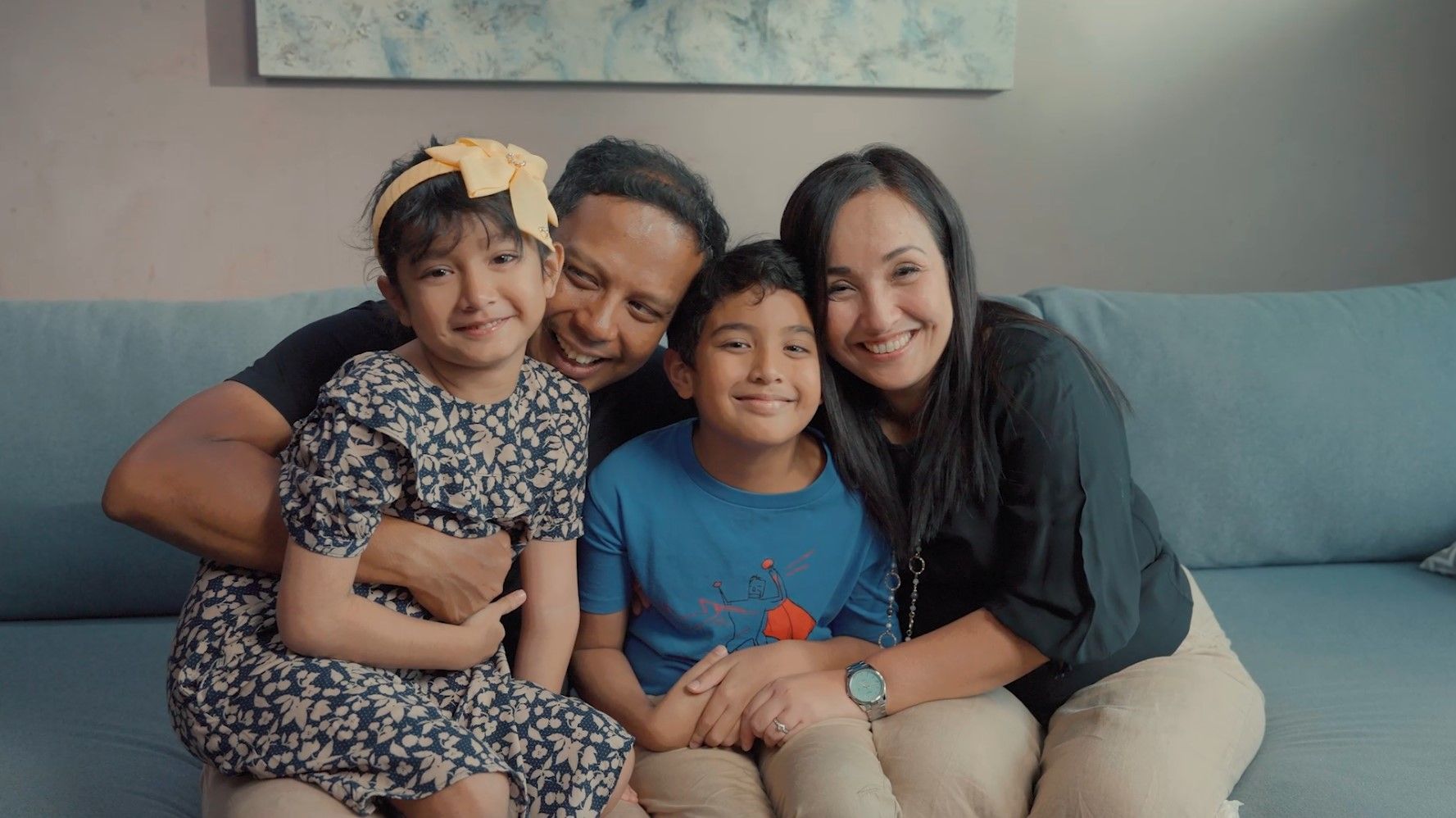Discover Aisha's inspiring journey with Type 1 diabetes. This story highlights the challenges and triumphs of managing diabetes in childhood, offering valuable insights and support for children and families dealing with this autoimmune disease. Learn valuable tips and find support for yourself or a loved one.

Early Signs and Symptoms
“I first noticed something was wrong when I had to change her diapers four to five times a night. I knew she was passing a lot of urine and drinking lots of water,” recalls Dr. Sherrini Bazir Ahmad, Aisha’s mother. “One day, on a family trip, I borrowed a glucometer from my father, who has Type 2 diabetes and checked her sugar levels. It was 20. I immediately knew the diagnosis and broke down. Everyone in the family was puzzled as to why I was crying.”
There is still a lot of misconception about Type 1 diabetes and people who don’t know will judge and they will say ‘Oh, you gave her too many candies’. In fact, Type 1 diabetes is an autoimmune disease that affects your body's ability to use sugar for energy. There is no known prevention, and it is not caused by diet or lifestyle.
Misconceptions About Type 1 Diabetes in Children
There are still many misconceptions about Type 1 diabetes. People often assume it is caused by consuming too many sweets. In reality, Type 1 diabetes is an autoimmune disease that affects the body's ability to use sugar for energy. It is not caused by diet or lifestyle, and there is no known way to prevent it.
“The minute we got home, we started throwing out all the candies. We drastically changed her diet to no sugar or low sugar. We gave her sugar-free jam, which tasted awful, but we got her to take it. If she wanted candies or biscuits, I had to tell her that I didn’t know how to manage her insulin levels, so she couldn’t have them for now. Instead, I would offer her egg whites or cheese,” Dr. Sherrini shared.
Managing Diabetes in Daily Life
Aisha has to have insulin before each meal but Dr Sherrini and her husband, Amir Fazly didn’t know how to dose her in between big meals or major meals so in the early days her readings were not good as they weren’t sure how Aisha would react to certain foods.
“It was very tiring and challenging initially. I would take turns to wake up at night to check on her. I would wake up at odd hours while she would wake up at even hours,” Amir said.
“I was concerned that her school might have a problem accepting Aisha, but the principal’s first words were, ‘How can we help?’ Those words were just amazing,” she expressed.
Aisha's Strength and Resilience
Aisha like any 7-year-old is just a fun and bubbly girl who loves gymnastics and swimming. Her parents empower her to not be shy if she needs to inject her insulin in public. Although every now and then she feels a bit embarrassed around people she’s not familiar with, but Aisha is encouraged by her ‘superpower’, making her comfortable around that environment.
“It is so much better now. There is a lot more confidence in managing her lifestyle and we didn’t put a stop to anything. She can do a lot of activities and is free to do anything,” Amir said.
Support and Community
Dr Wu Loo Ling, SJMC Consultant Paediatrician and Endocrinologist shared that after diagnosis, it is important to help parents get over the emotional problem. It is essential for parents to get to know other parents with Type 1 diabetes children then they will feel that they are not alone. “There are many who face the same emotions and when they get a chance to speak to these people, they get their frustrations out of their chest and they feel a lot of better,” she said.
“Of course, there are ups and downs. Sometimes it is okay to just listen. Don’t be afraid and don’t be intimidated. There is tremendous support out there. It is okay to feel sad and it is okay to cry. Be with your child and go through this together with your child.
A Bright Future
“I hope Aisha, she can do anything. She’s going to grow up to be such a confident, brilliant, smart, and beautiful girl,” said Dr Sherrini. With the support of her family and the medical community, Aisha is empowered to live her life to the fullest despite her diagnosis.
Watch Aishah's Journey: Managing Type 1 Diabetes in Childhood
Find out more about Subang Jaya Medical Centre Services
- SJMC Paediatric Specialists | Expert Children's Doctors
- SJMC Diabetes Care Services
- SJMC Health Screening Package
- SJMC Genetic Screening Test | Know your health risks
- SJMC Healthcare Offers & Promotions
